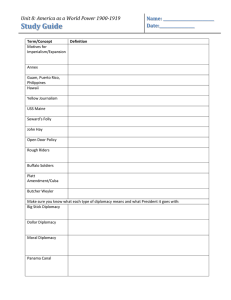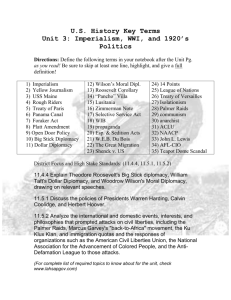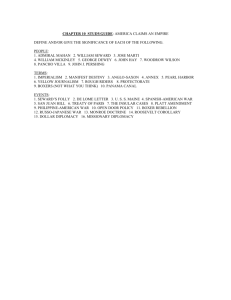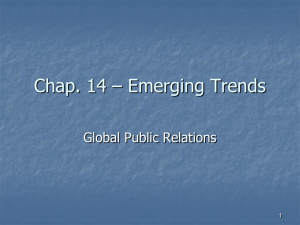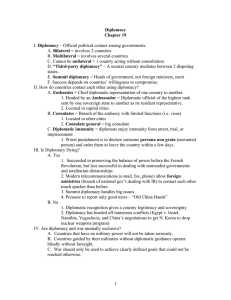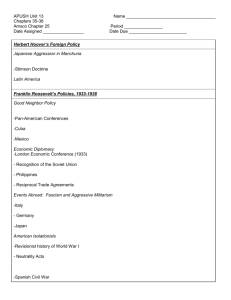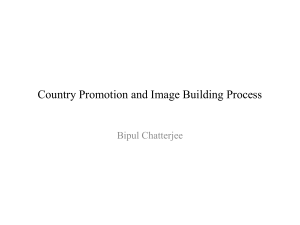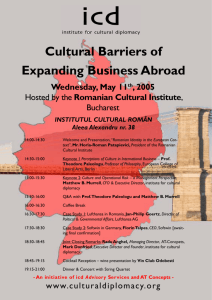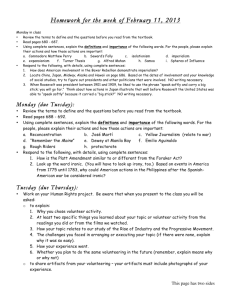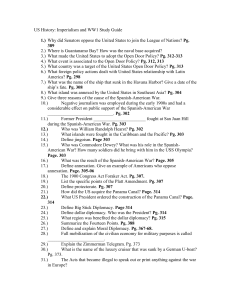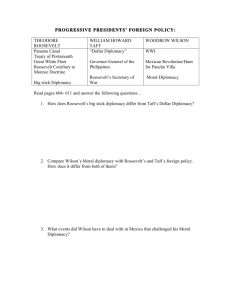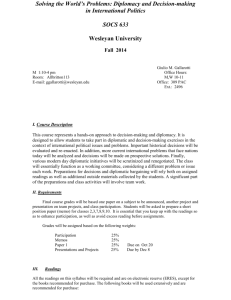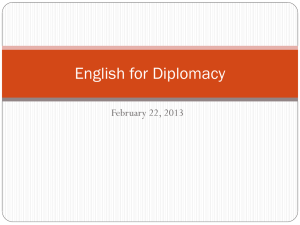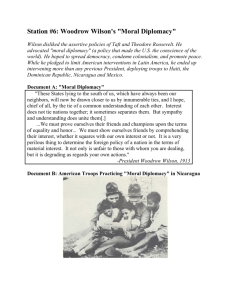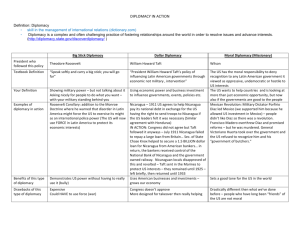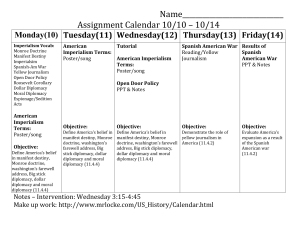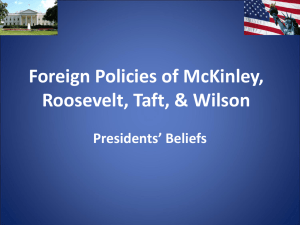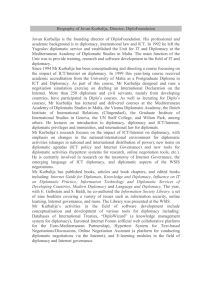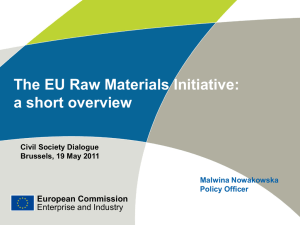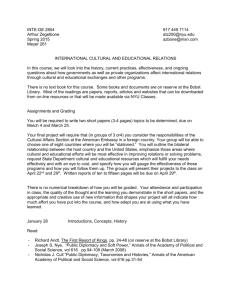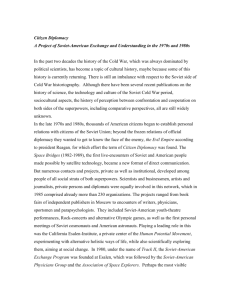lexical foreign
advertisement
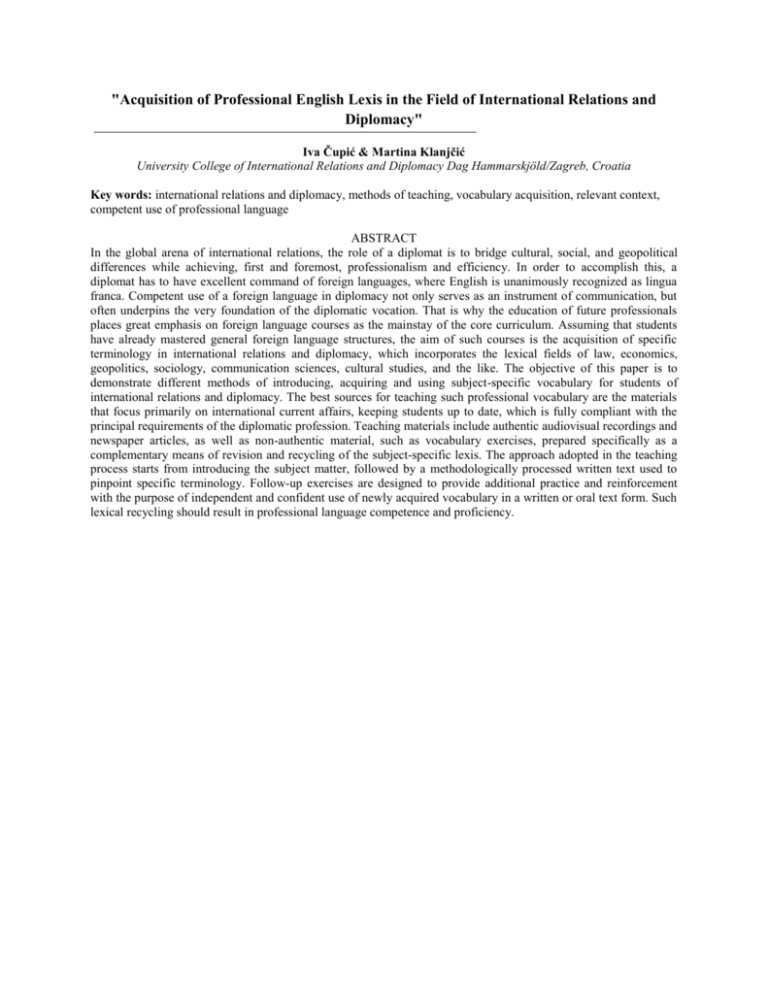
"Acquisition of Professional English Lexis in the Field of International Relations and Diplomacy" Iva Čupić & Martina Klanjčić University College of International Relations and Diplomacy Dag Hammarskjöld/Zagreb, Croatia Key words: international relations and diplomacy, methods of teaching, vocabulary acquisition, relevant context, competent use of professional language ABSTRACT In the global arena of international relations, the role of a diplomat is to bridge cultural, social, and geopolitical differences while achieving, first and foremost, professionalism and efficiency. In order to accomplish this, a diplomat has to have excellent command of foreign languages, where English is unanimously recognized as lingua franca. Competent use of a foreign language in diplomacy not only serves as an instrument of communication, but often underpins the very foundation of the diplomatic vocation. That is why the education of future professionals places great emphasis on foreign language courses as the mainstay of the core curriculum. Assuming that students have already mastered general foreign language structures, the aim of such courses is the acquisition of specific terminology in international relations and diplomacy, which incorporates the lexical fields of law, economics, geopolitics, sociology, communication sciences, cultural studies, and the like. The objective of this paper is to demonstrate different methods of introducing, acquiring and using subject-specific vocabulary for students of international relations and diplomacy. The best sources for teaching such professional vocabulary are the materials that focus primarily on international current affairs, keeping students up to date, which is fully compliant with the principal requirements of the diplomatic profession. Teaching materials include authentic audiovisual recordings and newspaper articles, as well as non-authentic material, such as vocabulary exercises, prepared specifically as a complementary means of revision and recycling of the subject-specific lexis. The approach adopted in the teaching process starts from introducing the subject matter, followed by a methodologically processed written text used to pinpoint specific terminology. Follow-up exercises are designed to provide additional practice and reinforcement with the purpose of independent and confident use of newly acquired vocabulary in a written or oral text form. Such lexical recycling should result in professional language competence and proficiency.
